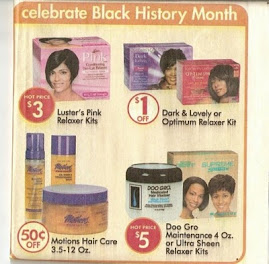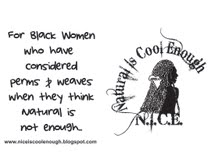Recently, at a showing of Chris Rock's Film Good Hair at the University
of Miami, students were given the opportunity to participate in a
writing contest by writing a review of the film. There were two
winners. The second place winner was Eboni Person (depicted
below)who will receive an Africana
Studies Program's Fannie Lou Hamer Award on November 27 at a Reception
in her honor along with the first place winner. Congratulations Eboni! Your
writing and analysis of the film is
excellent and N.I.C.E. Salutes you! Please enjoy her entry
below.
Eboni Person
Good Hair Film Review
One day the young daughter of comedian Chris
Rock came up to him and said, “Daddy, how come I don’t have good hair?” It was
that question that started Rock’s journey to uncovering the meaning of good
hair and exploring the multibillion dollar industry that surrounds Black hair.
In the 2009 documentary “Good Hair”, directed by
Jeff Stilson, Rock successfully explained the meaning of good hair through
interviews with members of “Black Hollywood” and hair care professionals. And,
of course, Rock could not leave out his own witty commentary.
The simplest way of defining good hair is straight
hair. And the best way to transform “bad hair,” the hair that naturally grows
out of the scalps of black people, is to relax it. A Relaxer is a cream that is
applied to the roots of the hair. As it sits in the hair it chemically alters
the natural hair texture; preferably making curly and coarse hair, straight and
smooth.
The film explained that along with relaxers,
hair weaves are worn to achieve the European look and standard of beauty. The
purchasing of weaves is an expensive habit. A habit indulged by the rich and famous,
as well as normal working class citizens. Rock traveled to India to see the
hair cut off the heads of Indian women. The hair would then be turned into hair
weaves and shipped into the U.S. The demand for hair in the states is so great
that in India 10 inches of hair is like gold.
Rock backed away from the social and economic
aspects of hair to show the entertainment side of black hair. He went to the
annual Bronner Bros. Hair Show in Atlanta where hair stylists compete to show
how creative and unique they can be with their styling skills.
Bottom line, the film was thought provoking and
illuminating of a once touchy subject; black hair. It had some solemn moments,
but Rock always knows how to lighten a mood.













